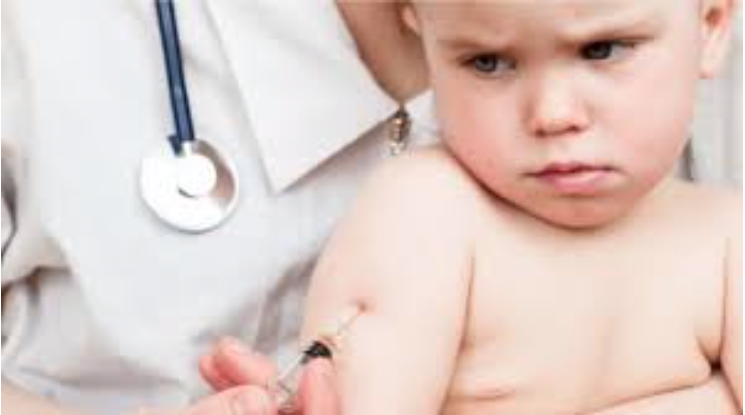CommentsHEALTH POLITICS--over the last year, Americans have seen some of the worst measles outbreaks in decades. The once-eradicated disease is now endangering the health and lives of people from New York to Washington, where the governor recently declared a state of emergency.
This rise in preventable diseases, like measles and whooping cough, has put a renewed focus on the anti-vaccination movement; the World Health Organization even named “vaccine hesitancy” as one of the top 10 threats to global health. What’s less discussed, though, is who decides not to vaccinate; understanding that would provide clues about how they may be persuaded to change their minds.
The leaders of the anti-vaccination movement — both at home and on the national stage — are women. (Specifically, women in affluent areas.) They’re disproportionately the family members who make medical decisions about kids, they’re the most active in chat rooms, and they’re the most recognizable public faces of the anti-vaccination movement.
First, there was Jenny McCarthy, who claimed that a vaccine gave her son autism, becoming a spokesperson for an anti-vaccination group. Then there were “mommy blogs” by women who wanted their children exempt from vaccination mandates. Just this week, Darla Shine, wife of White House communications chief Bill Shine, called the measles outbreak “fake” and “hysteria,” even suggesting that contracting the sometimes deadly disease could protect against illness later in life.
The reason that the anti-vaccination movement is overwhelmingly female is not just the result of mothers being the most likely to make medical decisions — it’s also because of their understandable distrust of the medical establishment. There is ample evidence published in scientific journals that women are more likely than men to be disbelieved or not taken seriously when they report chronic pain or fatigue, among other symptoms, and to have their concerns written of as “all in their head.” There’s also ample anecdotal evidence that doctors can be condescending to women (and men, too). So, it’s no surprise that many women don’t always think the medical establishment has their best interest at heart.
The other major reason women are drawn to the anti-vaccination movement is that it makes them feel like experts in a culture where women’s intelligence and experience is so often discounted. They’re researching online, calling themselves “Dr. Google,” and speak of trusting their motherly instinct over proven science. When McCarthy appeared on Oprah Winfrey’s show in 2007 and was asked about research and proof for her beliefs on vaccinations, for example, she replied, “My science is Evan. He’s at home. That’s my science.”
This kind of thinking has an intuitive appeal: It can be empowering to trust yourself and your instincts, especially when you’ve been told over and over that they’re wrong. I’ve heard anti-vaxx parents talk about the idea of consent — that their child is too young to agree to receive medication. But invoking feminist rhetoric of consent for an anti-science movement that puts children’s lives in danger does not make it any more accurate or safe.
We know that vaccine hesitancy, or exemptions, can be deadly. So, understanding the role that gender plays in the anti-vaccination movement can help us: Telling these parents, mostly women, that they’re stupid is only going to make them dig in more. Telling them to trust the medical establishment without question won’t help either. If we can address some of the sexism behind those core beliefs, however, we may be able to make some progress.
We don’t have to humor anti-scientific ideas to treat women with respect; we can listen to their fears, understand their skepticism, and have a conversation. We can talk about the real reasons women distrust the medical establishment and why that might color their view of vaccines. We can empathize with that fear and offer counter-perspectives. One study showed that simply having parents who do vaccinate their children talk about how positively they feel about it changed the minds of those who were hesitant.
I understand the instinct to yell down parents who choose not to vaccinate their children — my daughter was born three months early and had severe immunity problems. She couldn’t attend daycare until she was 2 years old for fear of her getting sick, and I was terrified of her being exposed to an unvaccinated child.
The dangers around this issue are not theoretical. But that’s exactly why we need a lasting solution beyond shaming; it’s not just the measles we need to stop from spreading, it’s misinformation.
4.5K claps
(Jessica Valenti is a feminist, an author and a columnist who posts at Medium.com)
-cw















